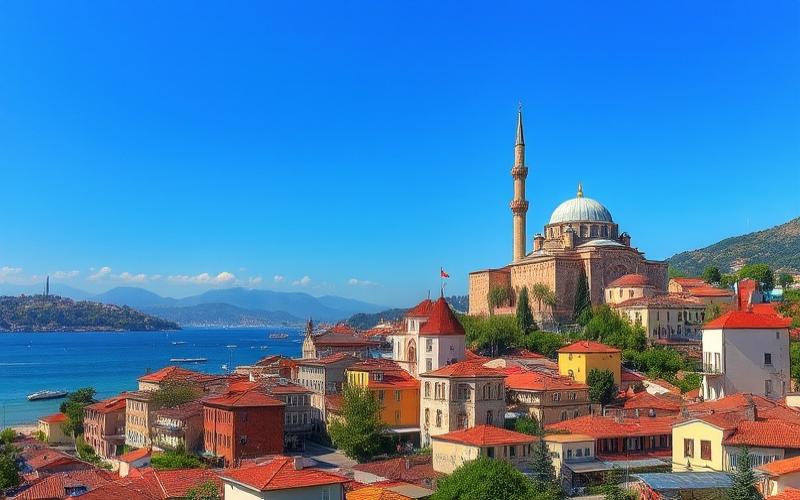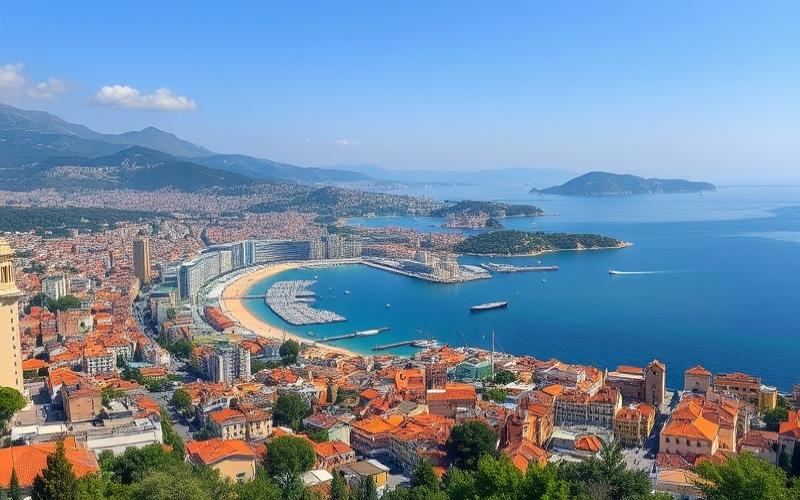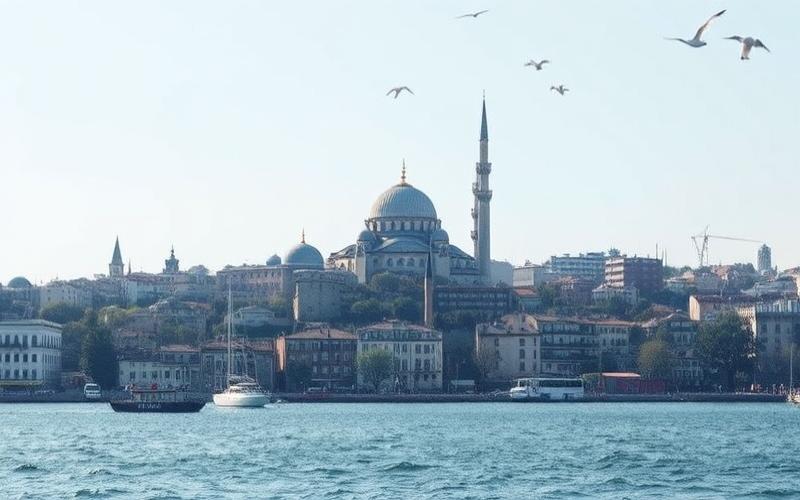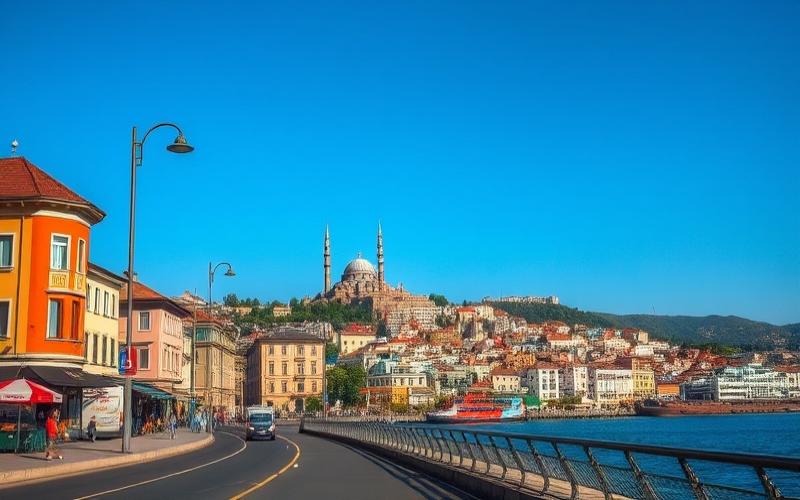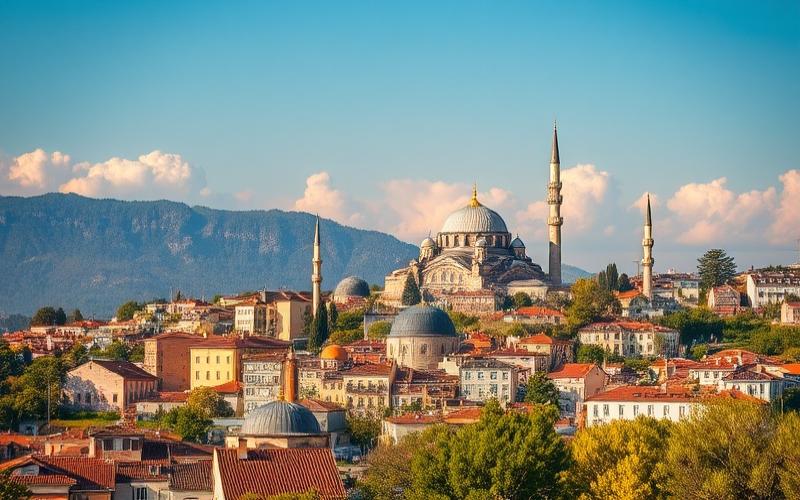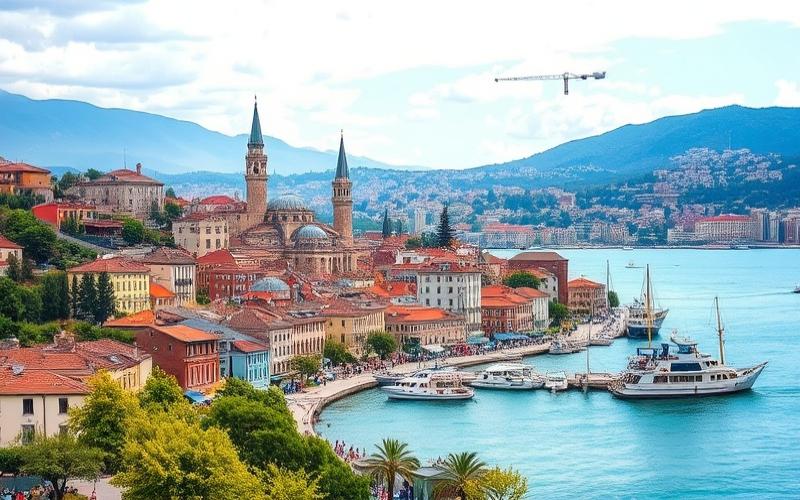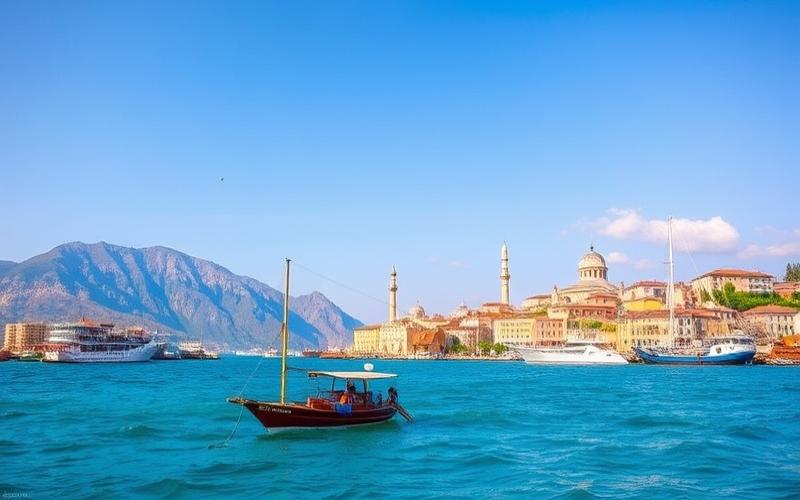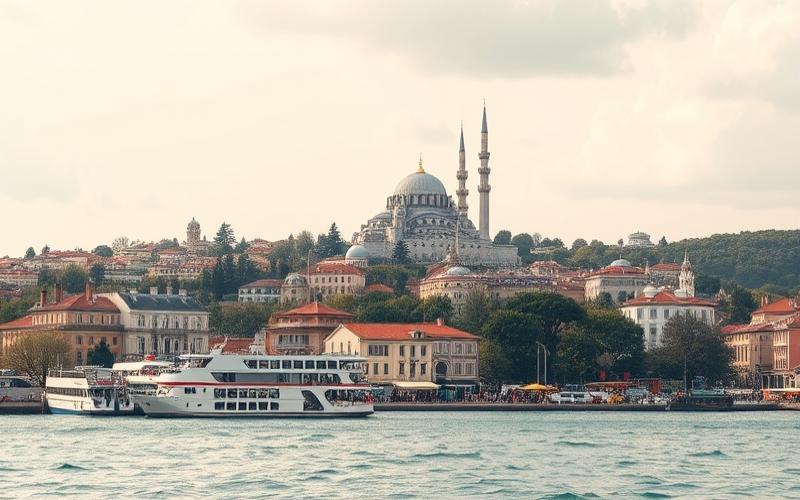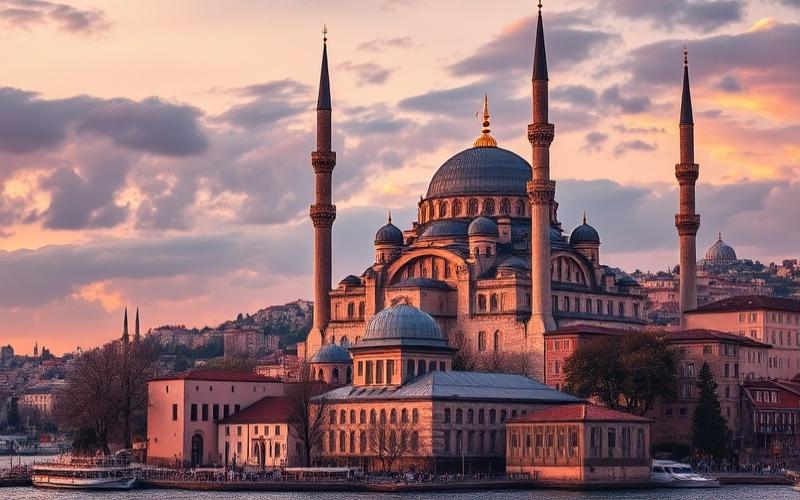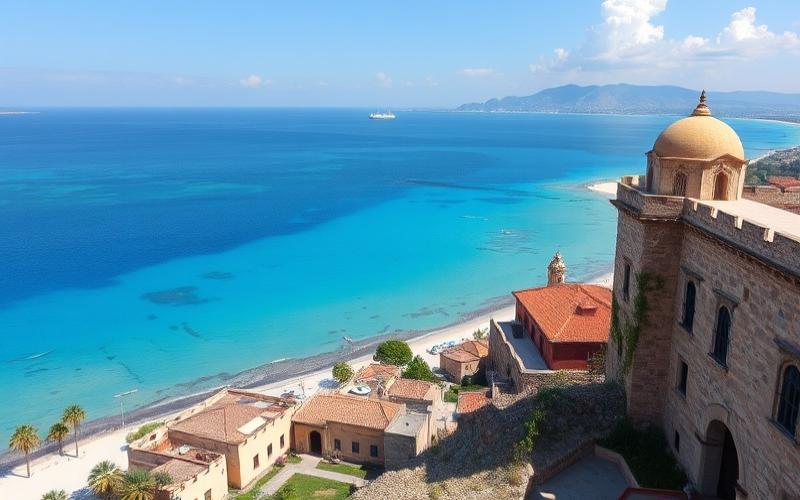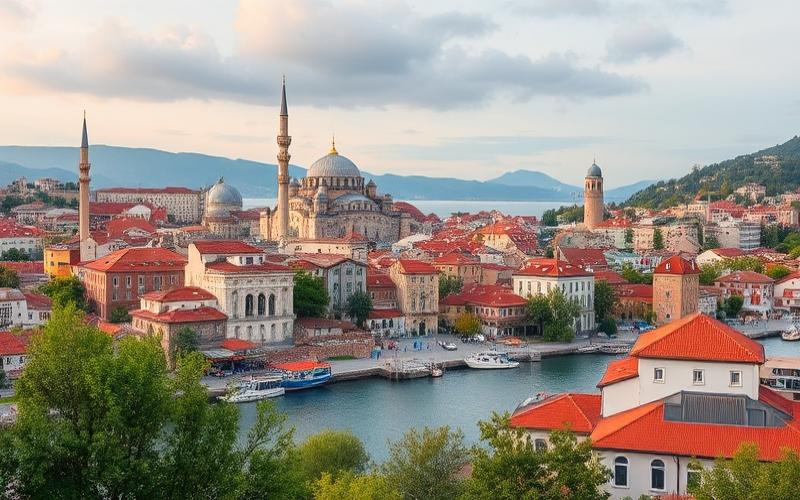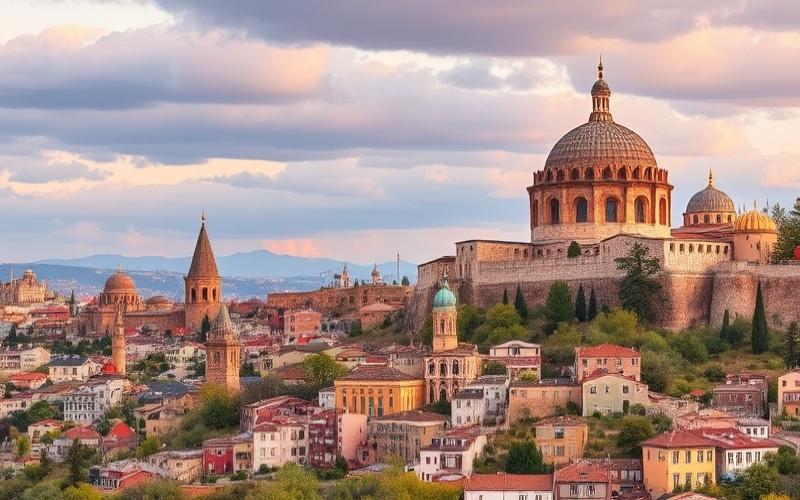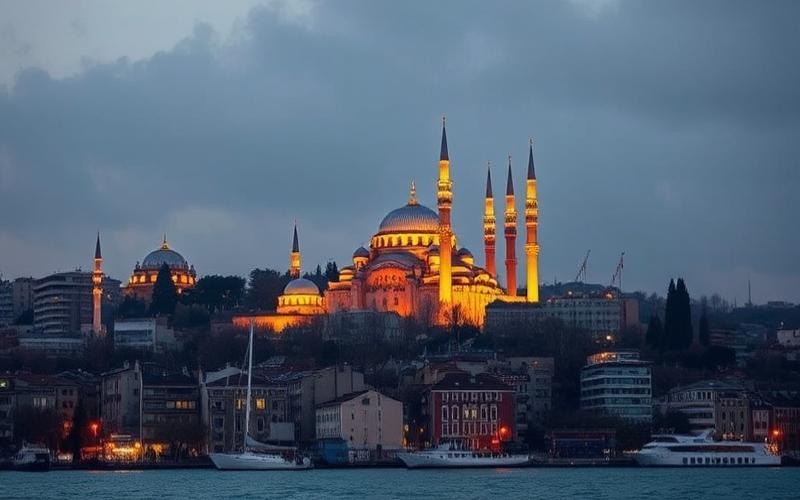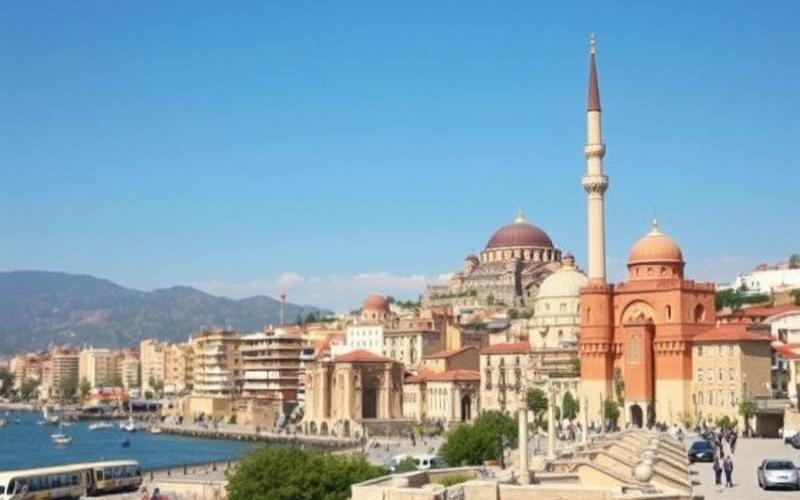
 Published on and written by Cyril Jarnias
Published on and written by Cyril Jarnias
Relocating to Turkey isn’t just a geographical adventure—it’s an immersion into a world rich with millennium-old traditions and distinct customs. To integrate smoothly and fully appreciate life in this fascinating country, it’s crucial to understand certain cultural differences that characterize daily life in Turkey.
From the subtleties of nonverbal communication to social rituals like Çay tea, and the importance of family values, every aspect of Turkish culture offers a unique opportunity for personal enrichment.
This article will serve as your guide to navigating your new life with ease and avoiding any cultural misunderstandings that might arise.
Decoding Turkish Social Norms
Turkish social norms are based on traditional values where family, hospitality, respect for elders, and politeness structure daily interactions.
Here’s an overview of their main characteristics:
| Aspect | Description |
|---|---|
| Hospitality | Warmly welcoming guests and strangers is a core value. Offering tea or a meal is part of Turkish friendliness; refusing without valid reason may be seen as impolite. Gatherings are often generous and centered around food. |
| Respect for Elders | Respect toward elderly people is shown through formal language, attentive listening, and sometimes even hand-kissing during family or official greetings. Their opinion is sought in important decisions; interrupting an elder is highly frowned upon. |
| Family at the Heart of Society | The extended family (parents, uncles/aunts, cousins) plays a central role in social organization: daily mutual aid, intergenerational solidarity, and moral support are naturally expected among members. Family stability takes precedence over individualism; this influences both personal and professional choices (preference for working with/recommending someone from the family circle). |
Cultural Practices Influencing Daily Life:
- Dress codes vary by region but generally favor a certain modesty.
- Punctuality isn’t always strict for social events.
- Showing humility in speech is appreciated.
Politeness Expectations and Customs at Social Gatherings:
- Consistently use polite phrases (“thank you,” “please,” “excuse me”).
- Greet all present individuals personally.
- Bring a small gift (local pastry or flowers) when invited to someone’s home.
Religion’s Impact on Social Norms:
The Muslim majority strongly influences:
- The importance given to religious holidays (Ramadan/Ramazan, Kurban Bayramı).
- Informal rules regarding alcohol consumption or public attitudes during certain periods.
However, there’s diversity between more liberal urban practices and more conservative rural traditions.
Comparison with Other Cultures & Practical Tips for Expatriates:
| Distinctive Turkish Elements | Tips for Expatriates |
|---|---|
| Collective centrality vs. Western individualism | Showing interest in family before any professional topic facilitates integration. |
| Weight of nonverbal communication in interaction | Observing gestures/expressions before responding hastily helps avoid misunderstandings. |
| Major role of hierarchical respect | Always address elders/leaders first during professional meetings. |
Key Tips to Avoid Cultural Faux Pas:
- Always greet everyone individually when arriving/leaving.
- Be discreet when discussing politics/religion: sensitive topics that can create unnecessary tension.
- Scrupulously respect local customs during religious holidays or major family events.
Human relationships in Turkey are based on a subtle combination of spontaneous warmth and formal respect—understanding these nuances promotes harmonious integration both personally and professionally.
Good to Know:
In Turkey, hospitality is an essential value, often expressed through warm gestures toward guests, who should always accept at least one tea to avoid offending their hosts. Respect for elders is paramount, shown through marks of deference and the use of respectful terms. Family is central to social life, often involving family commitments that may take precedence over professional obligations. Social gatherings follow specific customs, like removing shoes when entering a home, and marked politeness, such as kissing elders’ hands. Religion, primarily Islam, influences social norms, reflected in prayer times and fasting periods during Ramadan. Expatriates should familiarize themselves with these customs to avoid misunderstandings, being attentive to differences with their own culture to facilitate integration into Turkish daily life.
The Art of Traditions and Customs in Turkey
The family holds a central place in Turkish society, considered the foundation of values and traditions. Traditional roles within the household remain very present: often, the man is seen as the head of the family and primary breadwinner, while the woman manages domestic tasks and oversees child-rearing. Respect for elders is paramount; their opinion matters in major decisions such as marriage or buying a home.
Tea (çay) and Turkish coffee ceremonies are essential to social life. Offering a cup of tea or coffee symbolizes hospitality, friendship, and respect. Black tea, mainly cultivated in the Rize region since the 1920s, is omnipresent at family or professional meetings. It’s served in small tulip-shaped glasses without handles; refusing tea may even be perceived as a lack of courtesy.
Turkish coffee has its own rituals: it often accompanies wedding ceremonies where the bride-to-be prepares coffee for her suitor and in-laws to demonstrate her domestic skills. The quality of the coffee served is an integral part of the judgment made of her on these occasions. After tasting, it’s common to invert the cup to read the grounds—a divination practice called fal that strengthens social bonds among guests.
Main Traditional Holidays:
| Holiday | Cultural Significance | Associated Practices |
|---|---|---|
| Ramadan | Sacred month of fasting | Daily family breaking of fast (iftar), solidarity with the needy |
| Feast of Sacrifice (Kurban Bayramı) | Commemoration of Abraham | Ritual animal sacrifice shared with relatives and those in need |
During major religious holidays or family ceremonies (especially weddings), strict adherence to dress customs is observed: men often wear dark suits; women favor long dresses or modest outfits covering shoulders and legs, particularly during mosque visits where a headscarf may be required.
Turkish cuisine highly values sharing: every meal becomes an opportunity for conviviality around a generous table mixing flatbreads (pide), varied mezzes (marinated vegetables, spiced yogurt), and sweet desserts like baklava or Turkish delight.
Traditional Craftsmanship Reflects Cultural Diversity:
- Hand-knotted carpets embody symbolic patterns passed down through generations.
- Anatolian pottery offers colorful vases with geometric designs.
- The delicate art of ebru involves creating colored marbling floating on water before transfer to paper—a technique classified as intangible heritage by UNESCO.
- Items related to tea/coffee service (decorated cups, engraved trays) are among typical souvenirs celebrating this ancestral know-how.
These practices testify to a rich heritage where every daily gesture is part of a historical continuity valuing warm welcome, family solidarity, and intergenerational transmission.
Good to Know:
Life in Turkey is intimately linked to family, where each member has a well-defined role, reflecting a coherent and supportive family structure. Tea and coffee ceremonies, symbols of hospitality, play a central role in daily social life and offer privileged moments for building connections. Among important holidays, Ramadan is a sacred month dedicated to spirituality and community, while the Feast of Sacrifice, or Kurban Bayramı, symbolizes sharing and generosity. Dress customs require appropriate attire, especially during religious visits, where a certain modesty is expected. Sharing dishes, often at the heart of Turkish conviviality, reflects the country’s culinary richness. Finally, craftsmanship, with works like carpets, pottery, and ebru, represents the expression of Turkish creativity, testifying to a rich cultural heritage.
Tips to Avoid Cultural Pitfalls in Turkey
Practical tips to avoid cultural pitfalls in Turkey:
Greetings and Politeness
- Learn and use some basic Turkish expressions:
- Merhaba (Hello, formal)
- Selam (Hi, informal)
- Günaydın (Good morning)
- İyi günler (Good day)
- Teşekkür ederim (Thank you very much)
- Lütfen (Please)
Greetings are often accompanied by a firm handshake between men. Between women or mixed genders, wait for the other person to make the first move.
It’s common to ask “Nasılsınız?” (“How are you?”), even during initial exchanges.
| Expression | Meaning | When to Use |
|---|---|---|
| Merhaba | Hello | All day, formal |
| Selam | Hi | Informal |
| Günaydın | Good morning | Morning |
| Teşekkür ederim | Thank you | To thank someone |
| Lütfen | Please | When making a request |
Showing politeness in all circumstances is highly appreciated.
Gestures and Social Rituals – Çay
Offering çay (Turkish tea) is an integral part of Turkish conviviality.
Refusing a first offer may be perceived as a lack of interest in the social relationship; it’s advisable to accept at least one glass if possible.
When tea or coffee is served, wait for the host to start drinking.
Table Etiquette and Dining Customs
Typical meals include bread, mezzes, grilled meats (kebabs), and often several shared dishes.
Wait for the host to begin before eating.
Always use your right hand for eating or offering/receiving something.
Systematically refusing food or drink may be frowned upon; prefer to respond with gratitude even if you decline after insistence (“Thank you very much, but I’m not hungry anymore”).
- Accept at least a small portion when invited
- Never openly criticize a local dish
- Don’t stick your utensils upright in rice
Time Management and Punctuality
Strict punctuality isn’t always expected in private contexts; arriving a few minutes late generally isn’t frowned upon in personal settings.
For professional appointments: be punctual, but be prepared to wait if your counterpart arrives late.
Religion and Religious Sites
Religion holds an important place in daily life.
To respect during visits:
- Wear covering attire: shoulders/legs covered, headscarf for women in mosques
- Remove your shoes before entering a mosque
- Avoid any noisy or demonstrative behavior
| Place | Main Rule |
|---|---|
| Mosque | Remove shoes at entrance |
| Mosque | Proper attire required |
| Prayer Time | Respect silence |
Sensitive Conversation Topics
To avoid misunderstandings:
Avoid spontaneously discussing:
- Turkish domestic politics
- Sensitive historical conflicts (Armenia/Greece/Kurdistan)
- Religion from a critical angle
If a delicate question is posed by your local counterpart, respond briefly without judgment or controversy.
Final List of Attitudes Promoting Successful Integration
- Observe before acting – discreetly imitate what your local hosts do
- Show cultural humility – ask questions about their habits rather than imposing your own references
- Value every opportunity offered to share a moment over tea
Respect these simple rules not only to avoid faux pas but also to more easily build authentic connections with your Turkish counterparts.
Good to Know:
In Turkey, greeting with a handshake is common, but a quick kiss on each cheek is also possible between close friends; offering or accepting çay is an important gesture of politeness. During meals, it’s impolite to refuse food or drinks, and traditional meals, often composed of varied mezzes, tend to be lengthy. Be attentive to time management, as appointments are rarely strictly punctual; flexibility is key. When visiting mosques, wear respectful attire with shoulders and knees covered, and remove your shoes; during Ramadan, respect those who are fasting. Avoid sensitive political or historical topics in conversations to prevent cultural misunderstandings. These tips will help expatriates integrate better and respect Turkish customs.
Disclaimer: The information provided on this website is for informational purposes only and does not constitute financial, legal, or professional advice. We encourage you to consult qualified experts before making any investment, real estate, or expatriation decisions. Although we strive to maintain up-to-date and accurate information, we do not guarantee the completeness, accuracy, or timeliness of the proposed content. As investment and expatriation involve risks, we disclaim any liability for potential losses or damages arising from the use of this site. Your use of this site confirms your acceptance of these terms and your understanding of the associated risks.


